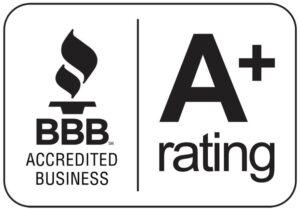As tax laws evolve, high-net-worth individuals and business owners must adopt proactive tax strategies to safeguard and grow their wealth. Without an intentional plan, a significant portion of earnings can be lost to taxation, reducing opportunities for reinvestment, legacy building, and financial security. This guide explores strategic tax planning techniques that go beyond compliance to maximize wealth retention.
Why Strategic Tax Planning is Essential
Many affluent individuals inadvertently overpay in taxes due to a lack of forward-thinking strategies. Standard tax preparation focuses on annual filings, whereas advanced planning integrates tax-efficient wealth management into long-term financial goals. Proper structuring can significantly reduce liabilities while keeping investments aligned with overall wealth-building objectives.
Advanced Tax Strategies to Optimize Financial Growth
1. Structuring Investments for Maximum Tax Efficiency
Investing strategically can provide significant tax benefits:
- Tax-Loss Harvesting: Offsetting capital gains by selling underperforming investments while maintaining portfolio growth.
- Private Placement Life Insurance (PPLI): Shielding investment growth from taxation through properly structured insurance vehicles.
- Opportunity Zone Investments: Deferring and potentially eliminating capital gains tax by investing in designated economic development areas.
2. Enhancing Business Tax Efficiencies
Entrepreneurs and business owners can unlock tax advantages through:
- Employee Stock Ownership Plans (ESOPs): Providing tax benefits while incentivizing employees with ownership stakes.
- Captive Insurance Companies: Reducing tax burdens by self-insuring risks and accumulating reserves in a tax-advantaged structure.
- Defined Benefit Plans: Maximizing retirement contributions to defer substantial amounts of taxable income.
3. Tax-Optimized Charitable Giving
Philanthropic efforts can be structured to maximize tax benefits while supporting causes:
- Charitable Remainder Trusts (CRTs): Converting appreciated assets into income streams while reducing taxable estates.
- Qualified Charitable Distributions (QCDs): Making tax-free donations directly from IRAs to satisfy required minimum distributions (RMDs).
- Foundation and Endowment Contributions: Creating lasting philanthropic impact with tax-exempt structures.
4. Estate and Legacy Tax Planning
Effective wealth transfer strategies ensure assets remain within the family while minimizing tax exposure:
- Spousal Lifetime Access Trusts (SLATs): Shielding assets from estate taxes while allowing indirect beneficiary access.
- Intentionally Defective Grantor Trusts (IDGTs): Facilitating tax-efficient asset transfers while maintaining control.
- Annual Gifting Strategies: Utilizing IRS exemption limits to gradually transfer wealth tax-free.
Common Tax Planning Misconceptions
Many individuals miss out on tax-saving opportunities due to widespread myths:
- “I don’t earn enough to benefit from advanced tax strategies.” In reality, individuals earning $500K+ annually can implement meaningful tax-saving approaches.
- “These strategies are too complex.” With the right advisory team, tax strategies can be seamlessly integrated into a financial plan.
- “I’ll just focus on tax savings when I retire.” Delayed planning often results in missed opportunities for tax-efficient wealth accumulation.
Securing Long-Term Financial Success
Proactive tax planning is crucial for wealth preservation, business expansion, and long-term financial security. By implementing tailored strategies, high-net-worth individuals can reduce tax liabilities, reinvest savings, and build a lasting legacy.
If you’re ready to optimize your tax strategy, consider working with a tax specialist who can design a customized approach for your unique financial landscape. Smart planning today ensures sustained prosperity for the future.



